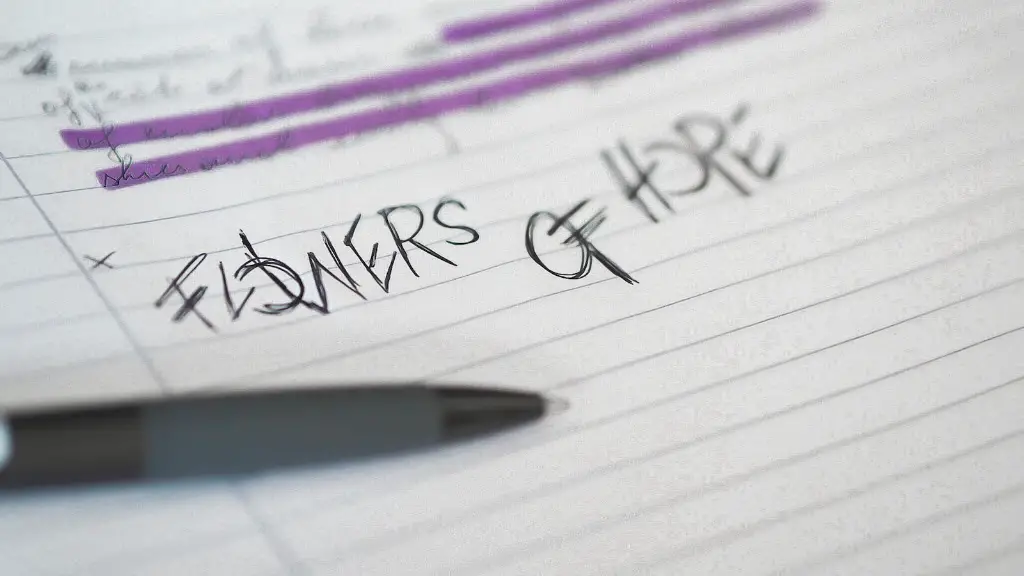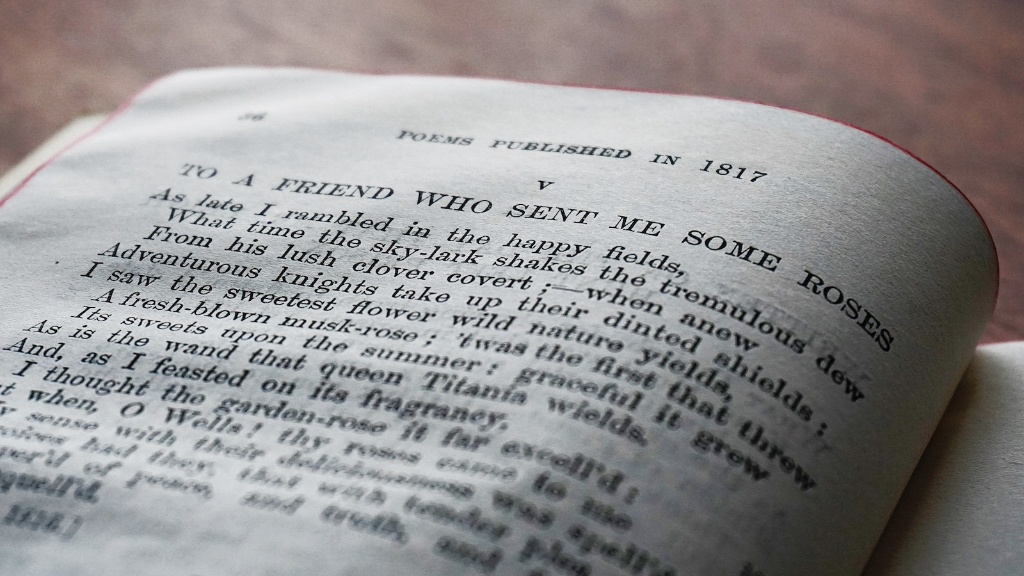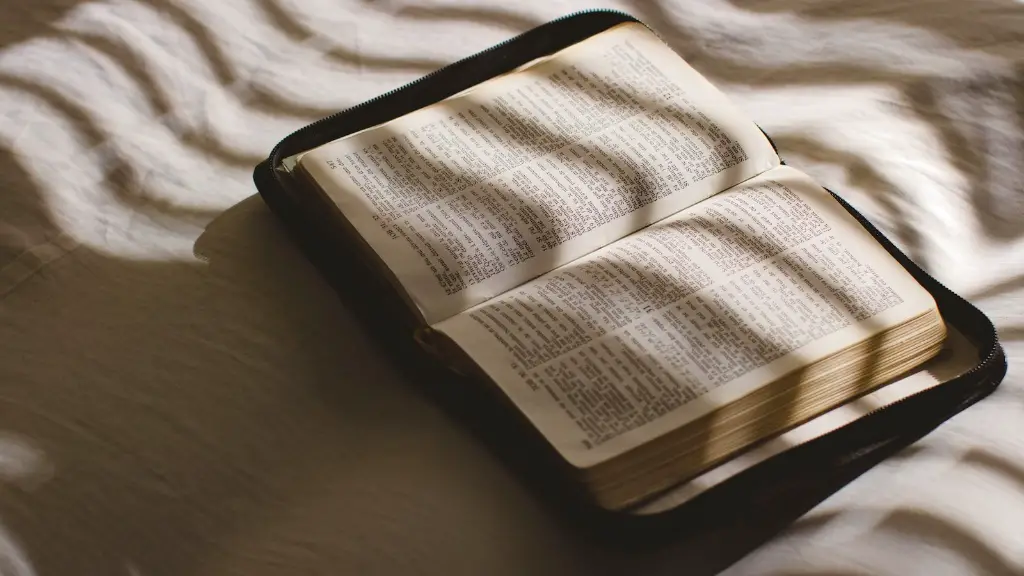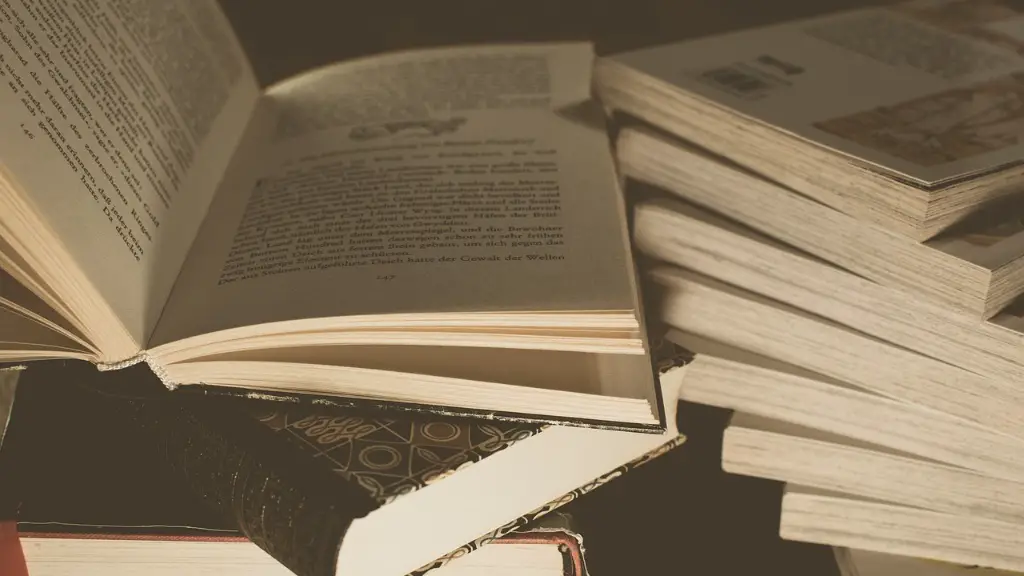Protest poetry is a powerful form of self-expression and can be used to express feelings of injustice, draw attention to causes and social problems, and influence public opinion. Not only is protest poetry a form of expression, but it is also a tool for social change and a way to take a stand against oppression, economic inequality, and racism.
Protest poetry has been used throughout history as a means to protest injustice. The Civil Rights Movement of the 1960s saw the rise of protest poetry, sparking a poetic revolution throughout the country. Documenting and expressing the emotion of the fight for civil rights, protest poems allowed people to have a voice and take part in the movement for justice.
In the present day, protest poetry is still used to address issues of inequality and injustice. Poets like Amiri Baraka, Langston Hughes, Nikki Giovanni, and Audre Lorde are just a few who used their words to speak out against the oppressive systems they experienced. Poems like Baraka’s “A Poem For Black Hearts”, Hughes’ “Harlem”, and Giovanni’s “Ego-Tripping” draw attention to the civil rights issues African Americans had to face and still face today.
For many people, protest poetry is also a form of healing. By writing and sharing their stories of struggle and oppression, many people are able to find empowerment. Writing about the pain and injustice of their experiences can help those who have suffered from oppression to find solace and gives them a platform to speak their truth. By doing this, they can reach people who share their struggles and help create a movement for change.
The power of protest poetry also lies in its ability to spread awareness and catalyze social change. Poems that relate to specific causes and injustices can be shared and spread across social media and other platforms. This helps to shift public opinion and can create collective action. Furthermore, protest poetry can create a sense of strength and unity by providing a platform for the marginalized and oppressed to speak out.
Despite its power, protest poetry is far from perfect. Writing in the first person, or with anger and emotion, can be seen as less valid or not considered “real” poetry by some. Furthermore, poems that speak out against oppressive systems can also be deemed too “political” or offensive and can face censorship. But despite these issues, protest poetry is still important and can provide a way for people to reclaim their voice and power.
Rhythm and Meter
The rhythm and meter of protest poetry are important elements that can be used to add emphasis to a poem’s message. By using patterns of sound, the words in the poem become more powerful and the emotions behind the words are amplified. Protest poets use rhythm and meter to give their words strength and create an emotional connection with the reader.
The most commonly used rhythmic patterns in protest poetry are iambic pentameter and free verse. Iambic pentameter is a rhythmic pattern of an unstressed syllable followed by a stressed syllable. This pattern can be used to create lines that are 10 syllables long and draw attention to the emphasized words. On the other hand, free verse is a type of poetry that does not use any specific meter or rhyme scheme. This gives the poet freedom to craft their words however they please and allows them to create a more personalized message.
The Role of Poets
Poets play an important role in protest poetry and can help to spread awareness and create a movement for social change. By using their words to discuss issues of injustice, oppression, and inequality, poets can help to create a dialogue and create a platform for the marginalized to speak their truth. Furthermore, as protest poetry is an emotional art form, poets can use their words to move people and create a sense of empathy.
In recent years, protest poets have become more public figures, appearing in publications and giving public performances. These performances help to bring their words to life and draw attention to their causes. Furthermore, the work of poets, such as Martin Luther King’s “I Have a Dream” speech, has become ingrained in our culture and become an iconic statement of the fight for civil rights.
Protest Poetry Around the World
Protest poetry is not limited to the United States and is used across the world to express feelings of injustice. For example, in South Africa, protest poetry is used to express the injustice and suffering of black people under apartheid. Poets like Mazisi Kunene, Imtiaz Dharker, and Sipho Sepamla use their words to portray the struggles and oppression faced by the South African people. Additionally, protest poetry is also used in Latin America, the Caribbean, and other parts of the world to express struggles of inequality in those areas.
The Impact of Protest Poetry
The impact of protest poetry is far-reaching and can inspire people to take action. By caring about and discussing issues of injustice and oppression, protest poetry can create a collective voice for the marginalized and create a dialogue about social issues. It can also help to shift public opinion, resulting in policy changes and fairer laws. Protest poetry is thus a powerful tool for creating social change.
The Art of Protest Poetry
Though protest poems may be born out of struggle and injustice, they are also art forms. Writing protest poetry is a way for poets to take the stories of their struggles and craft them into something beautiful and empowering. With this, protest poems become more than words, but a transformative experience full of emotion. Protest poems thus prove to be works of art that move us and inspire us to take action.
The Power of Language
The power of language is an important factor to consider when discussing protest poetry. Language is an essential tool in protest poetry, as the words chosen are carefully crafted to provoke emotion and draw attention to the injustice. Protest poets use powerful language to draw attention to their causes and to create a movement for change. This demonstrates the importance of language in any form of protest and the power that words can have.



